Processing Your Payment
Please do not leave this page until complete. This can take a few moments.
- News
-
Editions
-
- Lists
-
Viewpoints
-
Our Events
-
Event Info
- Business Leaders of the Year Reception 2025
- Women's Leadership Forum 2025
- On the Road with Mainebiz in Bethel
- Health Care Forum 2025
- On The Road with Mainebiz in Greenville
- On The Road with Mainebiz in Waterville
- Small Business Forum 2025
- Outstanding Women in Business Reception 2025
- On The Road with Mainebiz in Bath
- 60 Ideas in 60 Minutes Portland 2025
- 40 Under 40 Awards Reception 2025
- On The Road with Mainebiz in Lewiston / Auburn
- 60 Ideas in 60 Minutes Bangor 2025
Award Honorees
- 2025 Business Leaders of the Year
- 2024 Women to Watch Honorees
- 2024 Business Leaders of the Year
- 2023 NextUp: 40 Under 40 Honorees
- 2023 Women to Watch Honorees
- 2023 Business Leaders of the Year
- 2022 NextUp: 40 Under 40 Honorees
- 2022 Women to Watch Honorees
- 2022 Business Leaders of the Year
-
-
Calendar
-
Biz Marketplace
- News
- Editions
- Lists
- Viewpoints
-
Our Events
Event Info
- View all Events
- Business Leaders of the Year Reception 2025
- Women's Leadership Forum 2025
- On the Road with Mainebiz in Bethel
- Health Care Forum 2025
- On The Road with Mainebiz in Greenville
- + More
- On The Road with Mainebiz in Waterville
- Small Business Forum 2025
- Outstanding Women in Business Reception 2025
- On The Road with Mainebiz in Bath
- 60 Ideas in 60 Minutes Portland 2025
- 40 Under 40 Awards Reception 2025
- On The Road with Mainebiz in Lewiston / Auburn
- 60 Ideas in 60 Minutes Bangor 2025
- - Less
Award Honorees
- 2025 Business Leaders of the Year
- 2024 Women to Watch Honorees
- 2024 Business Leaders of the Year
- 2023 NextUp: 40 Under 40 Honorees
- 2023 Women to Watch Honorees
- 2023 Business Leaders of the Year
- + More
- 2022 NextUp: 40 Under 40 Honorees
- 2022 Women to Watch Honorees
- 2022 Business Leaders of the Year
- Nomination Forms
- Calendar
- Biz Marketplace
Climate change means big changes for Maine businesses, residents
 Photo / Lori Valigra
Photo / Lori Valigra
Heat waves, less snow and higher seas with new predator species from southern waters. With the changing climate, that’s what Mainers have to look forward to, if scientists’ predictions are correct.
And they’ll have to adjust their businesses, whether they be in fisheries, forestry, tourism or otherwise, accordingly.
“Some good may come of climate change, like more transit activity through the northern shipping route. That’s a change that could be beneficial to Maine,” U.S. Sen. Angus King told a gathering of some 300 climate experts at Bowdoin College in Brunswick last Friday.
Speaking via a video feed to the “Maine’s Economy and Climate Change” meeting, King also noted that we’ll see more storms, increased ocean acidification and changes in the sea and forest animals.
“I’ve had lobstermen tell me they’ve caught seahorses in their nets. I’d not heard about that before,” King said, noting as well that Lyme disease already is spreading into eastern and northern Maine.
“We’ll see big changes in infrastructure. So what are we going to do about it?” King asked.
Communities need to lead
The answer, according to Cameron Wake, professor in climate and sustainability at the University of New Hampshire in Durham, N.H., comes from the bottom up.
“Climate change is the biggest societal challenge we face. It’s too big for governments to solve,” Wake said. “We need to act in communities. We need to lead them [governments], and they will follow us.”
He said Maine will get a lot hotter, with the number of heat wave-like days numbering 40 by the end of this century, compared to about seven today. In fact, Southern Maine should prepare for a 4% to 6% sea level rise by the end of the century. By 2100, the sea could be 6-1/2 feet higher, up from half a foot higher in 2000. Half of summer will be a heat wave, Wake added.
“Humans are the main driver of climate change today,” he said. “Once you accept that, the future of climate is in our hands.”
Added Ivan Fernandez, professor of soil science at the University of Maine, Orono: “Climate change ‘from away’ affects all aspects of life and the economy in Maine.”
Changing fisheries
More southern species are coming into the Gulf of Maine as it warms. Among them are new predators, like black bass that eat lobster and hake that eat cod, said Andy Pershing, chief scientific officer of the Gulf of Maine Research Institute.
“As fishermen, the ocean is a workplace,” noted Richard Nelson, who has been a lobsterman for 40 years. “Those of us who work on the ocean day-to-day see the subtle changes in climate.”
Nelson added that fishermen will be among the first to see ocean acidification and also will be among the first to be displaced by it.
“The Gulf of Maine is warming faster than 99% of oceans on Earth; it’s an economic issue for Maine,” said Lisa Pohlmann, executive director of the Natural Resources Council of Maine.
Cleaner alternatives
Many of the conference attendees talked about cleaner energies that do not produce as much or any carbon dioxide, a major driver of climate change.
“Natural gas power plants can ‘firm up’ intermittent solar and wind to drive this and other countries forward,” said Dan Reicher, executive director of the Steyer-Taylor Center for Energy Policy and Finance at Stanford University.
Maine’s renewable energy generation rate tops 15%, not including hydroelectric, placing it among top states in the country, he added.
But alternative energies can be an uphill battle for some. For example, the solar investment tax credit drops from 30% to 10% at the end of next year. That will have a big impact on solar, Reicher said.
However, Reicher is optimistic: “Energy technology and information technology will lead to new opportunities in renewable energy.”
Read more


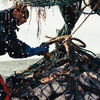
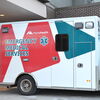


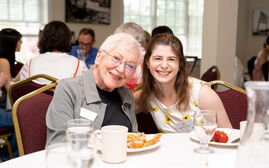
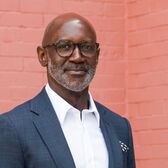
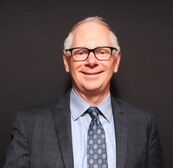




Comments